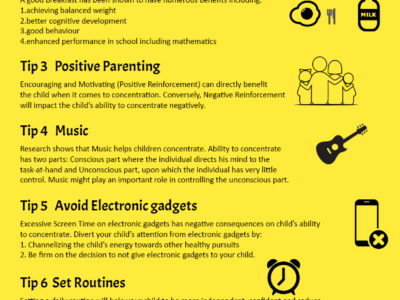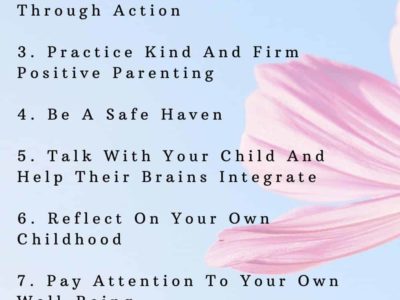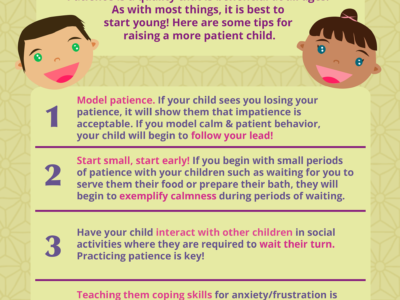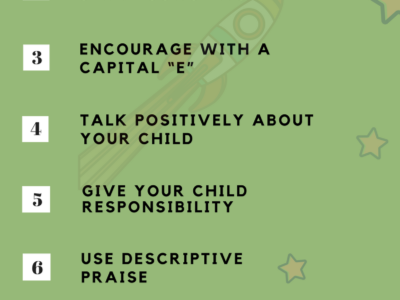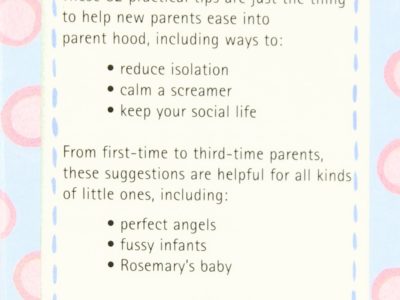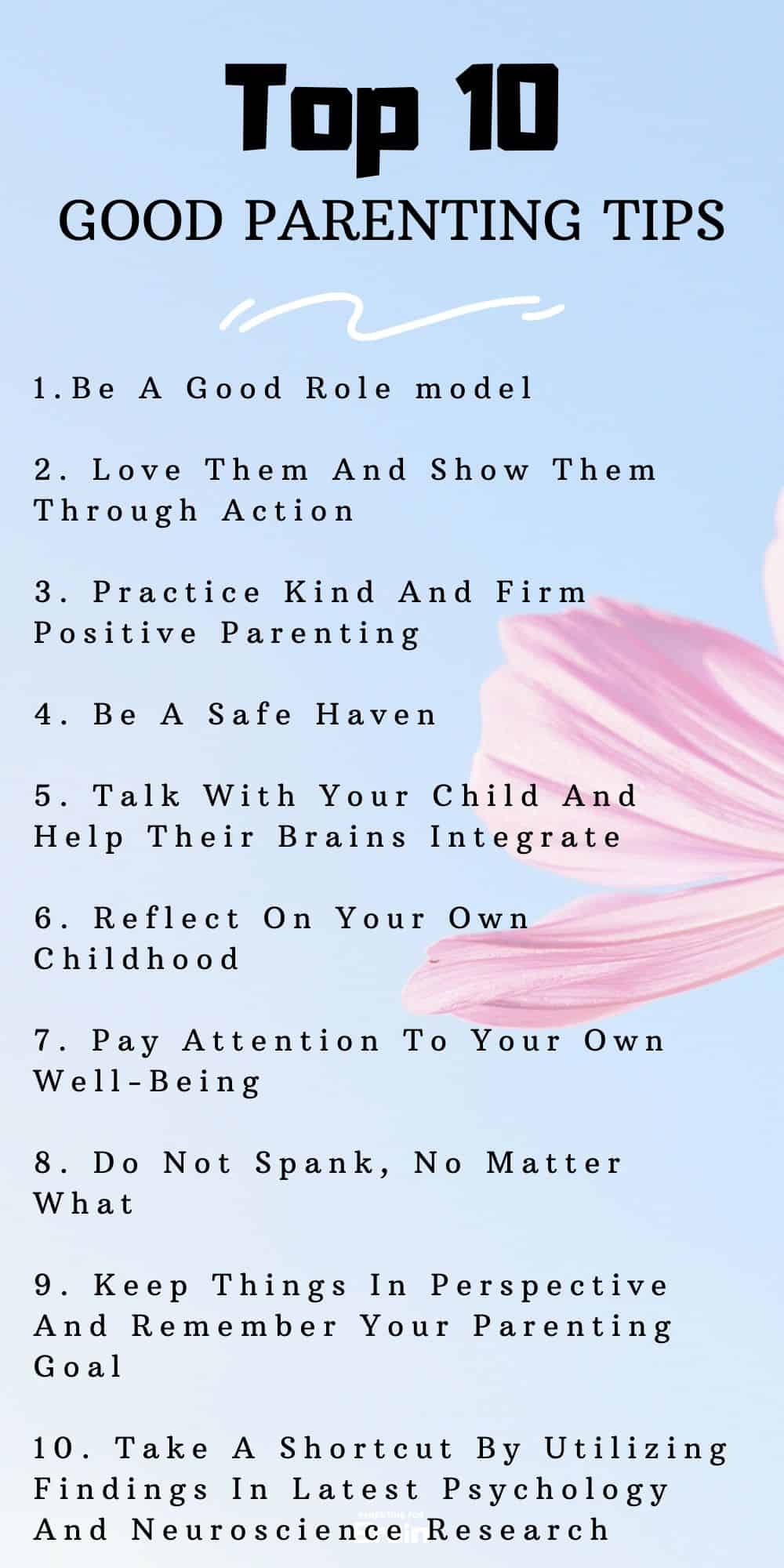
It is no secret that every parent wishes for their children to be happy and successful in life. Every parent wants the best for their children, to see them grow and be content with their lives and to live a healthy life with no regrets. However, despite this fact, many of us fail to be the kind of parents we wish to be for our children. There are numerous reasons behind this failure. The main problem is that both the parents and their children have a huge communication gap and do not communicate on the same frequency; moreover, most parents do not have any idea about successful parenting. Both the parents and their children wander aimlessly without any particular direction or agenda which often leads to an unhealthy relationship between them.
We are going to guide you about how to be a successful parent. The dos and don’ts of parenting that we all need to learn and embrace in order to have a successful future generation and a strong bond with our children.
Go through the guidelines mentioned below to learn to be a great parent. These tips will not only help your children in becoming better individuals but will also help you in understanding your children and their needs in a much better way.
Practice Discipline
This may sound shocking but all children desire discipline in their lives. As humans we all need a direction to follow, it’s built in our nature, children are no different. They need a direction to follow they need to be guided in the right direction. Good behavior is the basic key to discipline, when you set a behavioral system in your child’s mindset from a tender age, you will notice that the child will develop all good and healthy attributes such as honesty, loyalty, punctuality, truthfulness in his personality which will further shape him as a respectful individual. On the contrary, when there are no rules, children tend to go wild and misbehave often causing parents to feel embarrassed. So in order to have well behaved children we must practice discipline in our own lives. We need to feed our children’s minds with righteousness and positivity from a very young age so they grow to become successful individuals.
Participate in your Child’s Life
It’s been said that the best speculation a parent can ever make in their child’s life is investing their quality time and energy with them. If you act like a part-time parent your kid is likely to act as a part-time kid too. In the event that you just put in 50 percent, you just get out 50 percent in return. If you need a solid and enduring relationship with your child, you must be happy to make individual forfeits and put in the energy and exertion with your kid. It doesn’t make a difference what you do as long as you do it together. Once more, it’s about the nature of the time you spend together, not the number of exercises.
Growing up, I played a ton of sports. The one thing I loathed more than whatever else was perched on the seat and watching others in the warmth of fight. I needed more than anything to be in everything and when I wasn’t it destroyed me inside. Nobody likes to sit on the seat or “ride the pine” since it’s forlorn and exhausting. Everybody needs a slice of the pie and possibly if they’re fortunate enough, be the saint. At the point when you sit on the seat as a parent, you pass up probably the most valuable snapshots of your kid’s life. Minutes that you can never get back and ones that may never come back again. Try not to be an observer parent. Get off the seat and into the center of the fight. You’ll be happy you did this will your kid.
Be an Inspiration for your Child
The good example that will have the best effect and impact on your kid for either positive or negative in the course of their life is you – the parent. For young ladies, that parent is the mother and for the young men, the dad. This isn’t to imply that that the two guardians don’t affect their child since they do, yet considers have demonstrated that equivalent sex sexual orientation assumes a more noteworthy job in how that kid is impacted depending on the sex of that kid. Also, from a coherent angle, that bodes well. Females comprehend females better than a male and the other way around and for evident reasons. In any case, the two guardians need to set and be an extraordinary model for their kids.
At the point when kids are brought into this world, they gain from their folks and kin inside the home how to walk, talk, think, carry on, and obtain new information and comprehension. And as they grow older with time, they start to gain from others outside of their homes. That is the point at which they start to mingle into society and learn new mentalities, sentiments, and practices. Their psyche and body are attempting to detail this new information and conceptualize how this data will be handled. To put it plainly, they are attempting to discover their character and where they fit in the plan, all things considered, it tends to be an overwhelming and testing task for a kid.
That is the reason it is basic to such an extent that your kid gets off on the right foot to be more ready to face the challenges of life head-on. You as a parent have a gigantic obligation and obligation to guarantee that when your kid ventures out from home on their own that they have a battling potential for success of enduring and flourishing in a totally new condition that will shape what their identity is and who they will turn into. Yet, before society shows them, you have a particularly favorable position to sustain.
Be a Good Listener
No one jumps at the chance to hear others talk, particularly when they ramble on about themselves or need to hear an ear full for something they fouled up. Rather, take the more viable course and listen as opposed to talking. The general guideline is in any discussion, listen to 80 percent and talk just 20 percent of the time. That can be particularly intense for a parent since we generally need to instruct yet here’s the exercise: you can accomplish all the more great by listening then you can by talking.
If you need your children to truly “hear” or get you, you should initially hear them out. Permit them to share their contemplation and emotions without interference. As a rule, when you do, you gain proficiency with a couple of things:
1. You will, in general, be less critical.
2. You become less egotistical in light of the fact that you’re making an effort not to force your will.
3. You discover that a great many people make sense of the appropriate response themselves.
4. You assemble more knowledge and data from your child’s perspective.
5. You become increasingly thoughtful and learn persistence.
6. You assemble trust and regard.
- Speak Gently but Firmly
It’s consistently a fine equalization of having the perfect measure of tenderness blended in with firmness. There are times when you should be firm, particularly with regards to rules and censure yet there are additionally times when you should be delicate and offer a warm embrace and ameliorating words.
There is a time and place for everything and you should realize when the perfect time is to utilize either or both all the while. At the point when you are firm, be steady, and don’t waiver from it. Try not to be hesitant to be so just as fear how your child will respond. Try not to be antagonistic, tyrannical, or threatening. In addition to the fact that this is harassing and damaging manipulative. You will always lose any fight by carrying on as such. Rather, be quiet, think serenely, and talk smoothly.
Love Unconditionally
Kids desire attention and specifically their parents’ attention. Indeed, even as grown-ups, we need to in every case please our parents and do right by them. By prudence of being conceived, everybody deserves to be loved unconditionally. Love is the single most remarkable power that can truly change lives.
Throughout the years, there have been various brain science concentrates on the impact that love has on a child. What analysts realized is that babies, who were pampered, adored, given a great deal of fondness and strain since the beginning grew up “normal” with little to know reactions. On the contrary, children who were given less pampering, consideration, and friendship created extreme mental, psychological, and social issues. What’s more, in uncommon cases, a couple of the infants actually lost their lives due to a weak broken heart. Without affection, there is no life. Moreover, when we retain our affection from our kids or make it contingent, we are slowly shutting them out and killing the life out of them.
One of the essential qualities of love is support. At the point when we love others, we should lift them also. We ought to never disparage or put others down, particularly our children. On the off chance that we need to lift somebody up we must be remaining on higher ground.
To lift up our children, we ought to consistently say kind and empowering words that are real. Expressions, for example, “You’re an incredible child!” or “I’m grateful to have you!” or “I realized you could do it!” are straightforward yet strong approaches to construct self-assurance and confidence in a kid.
Forgive and be Less Critical
It is so natural to “fly off the handle” by hollering and shouting then it is by exercising self-control and mannerism. If we put ourselves in the shoes of our children we will be able to understand how they must feel while their own parents criticize them instead of being supportive. Every child makes mistakes, that’s how they learn and grow, being forgiving is a virtue that will pass on to your children from you and will make them respect you more.
Interestingly, as a rule, the occurrence that your kid was associated with was irrelevant yet, as a parent, we need to “show our kid a thing or two” and to “express what is on our mind” so the individual in question will never do it again. So what do you do? You holler in an uproarious voice and undermine the kid with extreme discipline.
As a parent, you should be not so much basic but rather more sympathetic. You commit errors also thus for what reason do you anticipate that your kid should be flawless? All things considered, they also are learning and attempting to make their own personality and part of that learning comes through experimentation. That is something worth being thankful for, not terrible. So don’t disparage the person in question for learning and not continually comprehending the best thing that the individual in question ought to do. Be persistent, be strong, and consider these to be as instructing minutes to explain the right techniques for completing a movement.
Always Be There
People more often commit things and do not fulfill them. In our world, we call it respectability – something that has been overlooked throughout the years.
At the point when you tell your child you will be there for their school play or game or get them from work, be there! On the off chance that you don’t, your child rapidly discovers that your assertion doesn’t mean anything and three things occur: one, your kid loses trust and faith in you; two, your kid disguises your “incident” or “lie” as them not being significant enough for you to be there; and three; your kid gains from your poor model and entirely soon, think about what begins to occur? Rather than your child getting back home on time, he starts to return home later and later and gives lame excuses like “I overlooked” or “I was occupied.” Hum… does this sound recognizable? It should. You showed them this path. What’s more, you didn’t understand it! Be there and your children will be there for you.









